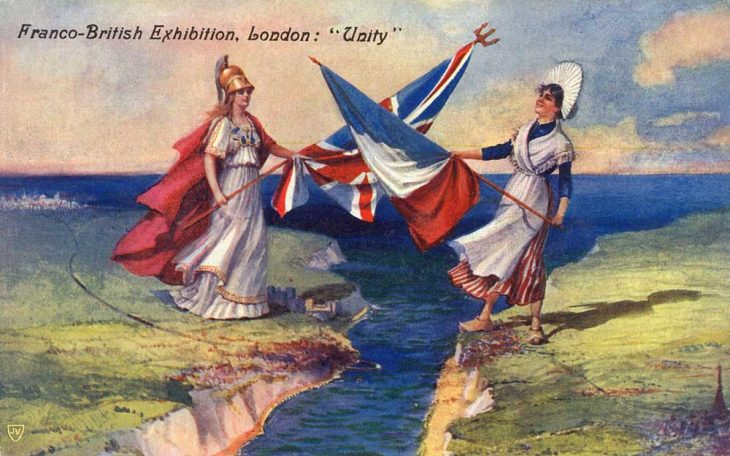
Word of the Day: Diplomacy
Today’s word of the day, thanks to Ambrose Bierce’s The Devil’s Dictionary, is the noun diplomacy. Diplomacy means, “1. the conduct by government officials of negotiations and other relations between nations”; “2. the art or science of conducting such negotiations”; “3. skill in managing negotiations, handling people, etc., so that there is little or no ill will; tact” (https://www.dictionary.com/browse/diplomacy?s=t).
According to www.etymonline.com, diplomacy entered the English language in “1793, from French diplomatie, formed from diplomate ‘diplomat’ (on model of aristocratie from aristocrate), from Modern Latin diplomaticus (1680s), from Latin diploma (genitive diplomatis) ‘official document conferring a privilege.’” In addition, “Meaning ‘dexterity or skill in managing negotiations of any kind’ is by 1848.”
But Bierce, in The Devil’s Dictionary, defines diplomacy as “The patriotic art of lying for
one’s country.”
On this date in 1904, the British and the French signed a series of documents that together became known as the Entente Cordiale, a French term meaning “warm agreement” or “cordial agreement.” This agreement, which followed upon literally centuries of conflict between the Franks and the British. Think 1066. There were numerous wars and battles. While the French managed to invade Britain successfully only in 1066, the British invaded France over and over throughout the Middle Ages.
But by the end of the 19th century, the issue was not so much about the British invading France or the French invading Britain; rather, it was about divvying up colonies, and, in particular, the colonies in the Middle East and in Africa.
Here is how the wiki describes the terms of the Entente Cordiale: “The most important feature of the agreement was that it recognised that Great Britain was in full control of Egypt and likewise France in Morocco (with the proviso that France’s eventual dispositions for Morocco include reasonable allowance for Spain’s interests there). At the same time, Britain ceded the Los Islands (off French Guinea) to France, defined the frontier of Nigeria in France’s favour, and agreed to French control of the upper Gambia valley, while France renounced its exclusive right to certain fisheries off Newfoundland. Furthermore, French and British proposed zones of influence in Siam (Thailand), which was eventually decided not to be colonised, were outlined, with the eastern territories, adjacent to French Indochina, becoming a proposed French zone, and the western, adjacent to Burmese Tenasserim, a proposed British zone. Arrangements were also made to allay the rivalry between British and French colonists in the New Hebrides” (https://en.wikipedia.org/wiki/Entente_Cordiale#Aftermath).
I wonder what kind of hubris it takes for two people groups to think that they somehow have the God-given right to divide up a world that doesn’t really belong to them. And to think that these sophisticated, Old-World diplomats did this dividing while calling it their agreement a cordial agreement. I wonder if the Egyptians found it particularly cordial that the British were given control of their country. I wonder if the Moroccans felt cordial toward the French.
I can’t cite a specific book on the issue, but it seems to me, though my own study of the history of the Middle East in particular, that today’s problems in countries like Iran and Iraq, especially in regard to their Kurdish populations, has a lot to do with the Entente Cordiale of 1904.
I guess that in this case, diplomacy is more than just lying for one’s country but actually lying to that country.
Today’s image is a promotional video for a concert on November 12, 2019, by the Bury Choral Society in Whitefield, England.